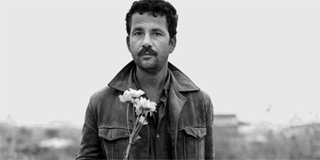Le Printemps de la Paix
Given that several events in the Middle East will before long take us by surprise, why not revive the hopes for peace between Palestinians and Israelis in earnest?

Given that several events in the Middle East will before long take us by surprise, why not revive the hopes for peace between Palestinians and Israelis in earnest?
The swapping of prisoners is the first notable change that may intervene in the forthcoming days with the release of a thousand or more imprisoned Palestinians in Israel, including the emblematic Fatah leader, Marwan Barghouti in exchange for the Israeli soldier, Gilad Shalit. The French, German, Turkish and especially Egyptian negotiators have devoted important efforts to this initiative.
The presence of Hamas agents and various Israeli officials in Cairo, notably the leader of Hamas’ military branch and General Amos Gilad, advisor to the Israeli defense minister, attests to the fact that mediation is in progress. A meeting between Ehud Barak, Israeli Defense Minister and Marshal Tantawy also took place.
The issue of prisoners, so important in the eyes of both parties can give a fresh impetus to the peace process, a genuine possibility for the resumption of negotiations. Such course of action would mean that for the first time, the Hamas, Fatah and the Israel’s Likud-led government may succeed in overcoming their differences to reach an agreement on the Palestinian prisoners and the release of Gilad Shalit. It would undeniably be a strong gesture, not only as a sign of goodwill but also a political act that would enable the Israeli governement as well as the international community to recognize the now coalesced Hamas-Fatah government.
Indeed, the recent establishment of national unity among Palestinians surely facilitates the renewal of the democratic process. Along these lines, the elections scheduled for the end of the year and the potential resumption of negotiations are fully in keeping with the wind of freedom blowing through the Arab world.
Also, the donors’ conference initiated by France and scheduled for July, aims at strengthening the Palestinian institutions in the making while promoting economic growth. In this way, France demonstrates a firm commitment to endowing the impending creation of a Palestinian state with a genuinely political dimension.
The peace paramters outlined by President Barack Obama in his speech of May 19th on the Middle East must serve as a guideline for discussions. Open talks on the territories on the basis of the borders of I967, set the necessary safety guarantees to both states, and envisage within a year consultations on refugees and Jerusalem constitute as a whole the essential foundations of a future reconciliation.
In light of these promising prospects, Israelis and Palestinians could in all likelihood reach an agreement that would ensure the creation of a Palestinian state this year. Rather than a symbolic recognition by the General Assembly of the United Nations, an international declaration establishing the state of Palestine alongside Israel is both necessary and highly desirable.
The viable parameters of reconciliation for lasting peace:
- East Jerusalem as the capital of Palestine and West Jerusalem that of Israel. The 1.5 km2 of holy places will be administered by a committee with–by way of illustration–the following parties: Israel, Palestine, Jordan, Morocco, Saudi Arabia and the Quartet.
- With regards to refugees, Israel and Arab countries will recognize their responsibility in the tragedy they have suffered. A Fund for Compensation of sixty billion dollars supplied by Israel, oil-producing nations and the OECD countries will compensate and / or help those who wish to settle in Palestine. As for the refugees choosing to remain in host countries (Lebanon, Syria, Iraq or elsewhere), they ought to be given full citizenship of those States.
Israel must also accept a number of refugees in the name of the right to family reunification, as discussed between President Abbas and Prime Minister Ehud Olmert.
The residents of the Jewish settlements who wish to live in the State of Palestine and shall become Palestinian citizens in their own right.
- On the issue of security, countries of the Middle East signatories of the peace could create a regional unit in partnership with NATO. Soldiers of a multinational force (such as those based in the Sinai) would be deployed at the Jordanian-Palestinian and Egyptian-Palestinian borders.
Normalization of relations between states in this region will result in the establishment of diplomatic ties between Palestine, Israel and their Arab and Muslim neighbors. The countries will open a new era of cooperation, exchange and development in all areas (cultural, economic, scientific …).
- Between Israel and Syria, the Golan Heights issue can be resolved by a demilitarization of this area that would be given back to Damascus while offering land leases to Israelis.
The major objective in the medium-term is for Israelis, Palestinians and the neighboring Arab populations to eventually trace the path to peace and build together for their common future.
Advisory committees should be established to examine the terms and means to consolidate an Israeli-Jordanian-Palestinian confederation and then extend this alliance to other Arab countries. Alternatively, the possible accession of Israel and Palestine to the European Union could be explored.
To bring these hopes to fruition, civil societies must expressly pressure their leaders to cease this long-lasting conflict. Because today more than ever before, people in the region aspire to freedom, dignity, education, democracy, justice, economic development, security, and finally, the arrival of another spring in the region: the Spring of Peace.
by Ofer Bronchtein, co-founder and president of the International Forum for peace.


